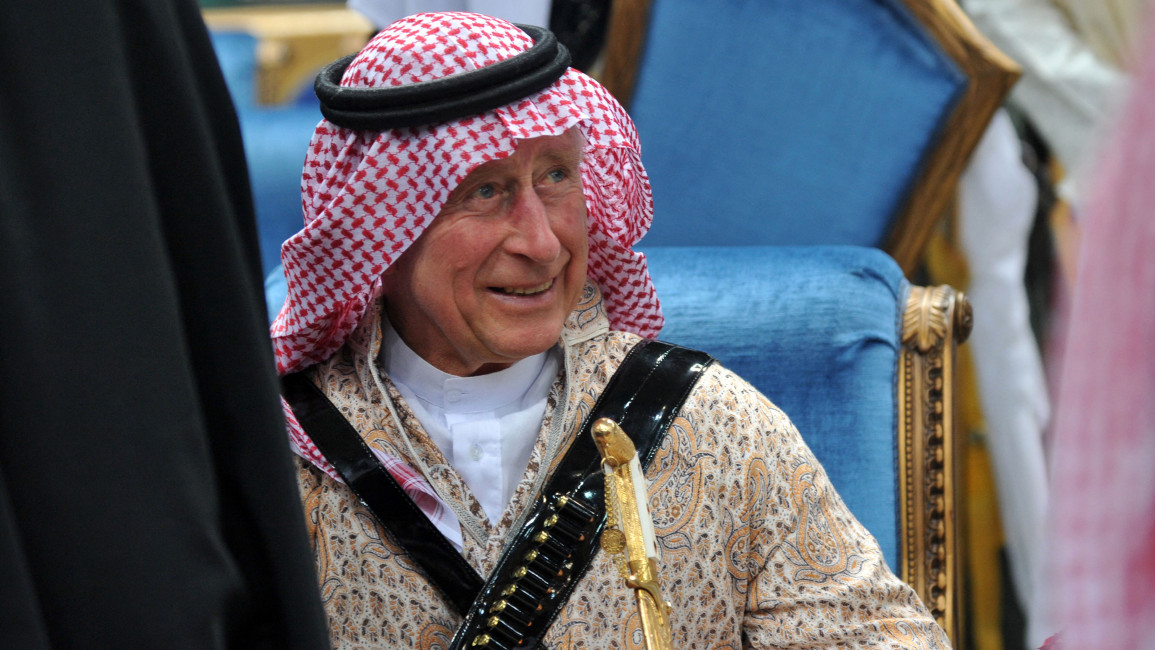King Charles III and the Middle East: What can we expect?
King Charles III has taken up the throne as the UK’s new monarch after the death of his mother, Queen Elizabeth II.
His accession to the head of the royal family marks the end of the longest wait in British history to become king.
While Prince of Wales, Charles was known for his publicly and privately outspoken comments on UK foreign policy, local political campaigns and personal passions.
In particular, Middle Eastern affairs have been of intense interest throughout Charles’ life - who even learned Arabic for six months before touring the Gulf on a state visit in 2016.
As monarch, however, Charles is constitutionally compelled to stay impartial on political matters and follow the line of the government of the day.
But after his prolific life in the public eye so far, the new king’s pre-existing relations with the countries across the Middle East may come under particular scrutiny.
Here’s what we might expect from the new ruler:
Friends in the Gulf
The British royal family have maintained close diplomatic ties with gulf monarchies for decades - and King Charles III is no exception.
In the ten years following the Arab Spring uprisings, the heir apparent had at least 95 meetings with Middle Eastern royals and sheikhs, according to investigations by Declassified UK.
Overall, members of the royal family had 217 meetings with the region’s monarchies since 2011 - including with Charles' disgraced brother prince Andrew.
Most recently, the king made headlines in the UK after receiving three million euros in cash donation from former Qatari prime minister Sheikh Hamad bin Jassim bin Jaber al-Thani for his charities.
There was, however, no suggestion that either party had acted illegally or improperly, and the prince’s office said the donations were subjected to all regulatory checks.
Support for Palestinians?
Of all recent royals to comment on Israel’s occupation of Palestine, Charles has been the most outspoken by far.
In January 2020, Charles made his first official tour of Israel and the occupied Palestinian territories, and is the most senior royal to have visited.
During the tour he said in a speech: “It is my dearest wish that the future will bring freedom, justice and equality to all Palestinians, enabling you to thrive and to prosper.”
However, Charles’ comments may seem like cold comfort to many Palestinians, who after over 100 years of lopsided British support for Israel since the Balfour declaration are not used to words of solidarity from the royal family.
UK military interventions
Charles’ criticism for the Iraq war in 2003 was largely levelled at former prime minister, Tony Blair, whom he reportedly called a "poodle" for supporting Bush's invasion of the country.
And according to revelations made by the prince’s biographer Robert Jobson, the prince would have made ‘his strongest possible objections’ to the war had he been king at the time.
Under the UK constitution, all declarations of war must be signed by the ruling monarch - and royal observers wonder whether King Charles III would acquiesce as easily as his mother if Britain goes to war again.
A hand to Sisi
In their first foreign visit since the pandemic, Charles and his wife Camilla’s made their way to Egypt as part of a tour promoting religious tolerance, as the queen’s ill health placed responsibility for official state visits to her eldest son.
Despite Britain’s disruptive history with Egypt - ruling the country as a de-facto colony for the first half of the 20th century - Charles and Camilla enjoyed a warm, if choreographed, reception in Cairo.
The pair met with President Abdel Fattah al-Sisi, visited the pyramids in Giza and visited al-Azhar mosque.
Critics argued that the royal visit was a chance for the Sisi regime to rehabilitate its image on the world stage despite their highly-criticised record on human rights and freedoms in Egypt.



